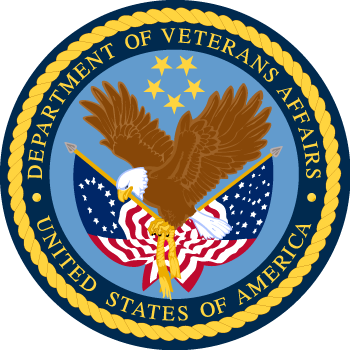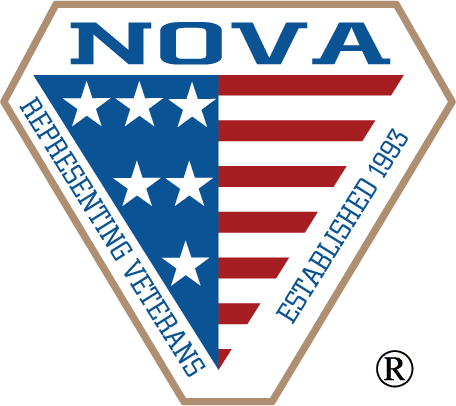What are Veterans Disability Benefits?
Veterans disability benefits are administered by the United States Department of Veterans Affairs. These benefits provide monthly payments to eligible veterans and their dependents.
At Perkins Studdard LLC we are laser-focused on only VA disability compensation benefits, also known as service-connected compensation benefits, that are handled by the Veterans Benefits Administration within the larger Department of Veterans Affairs. We do not handle pension benefits cases, which are for veterans or their families with limited income and assets who have disabilities that are not service-connected.

Types of VA Disability Compensation Benefits for Veterans
Some of the types of disability benefits available to veterans include:- Disability compensation
- Total Disability based on Individual Unemployability (TDIU)
- Special monthly compensation for loss (amputation) or loss of use of an extremity or organ, or if the service-connected disabilities cause the veteran to be housebound
- Aid and attendance
- PTSD
- Generalized anxiety disorder
- Major depressive disorder
- Parkinson’s Disease
Migraines - Low back and neck pain
- Sleep apnea
- Respiratory issues (asthma, rhinitis, sinusitis, etc.)
- Coronary artery disease / Ischemic heart disease
- Diabetes mellitus type 2 and diabetic complications
- Various types of cancer and leukemia
- Foot disabilities, including plantar fasciitis and pes planus (flatfoot)
Veterans Benefits for Dependents
Veterans are not the only ones who may be entitled to VA benefits. We also represent veterans’ dependent survivors (spouses, minor children, or helpless adult children) who may be eligible to receive compensation in the event of the veteran’s death. hese service-connected death benefits for survivors are called Dependent and Indemnity Compensation (DIC). They are similar to the service-connected disability benefits a living veteran receives, but the benefit amount and eligibility requirements are different. Any disability or disease resulting in death can qualify a surviving dependent for DIC benefits upon establishing the veteran’s death was related to service. Some of the more common ones include:
- Bladder cancer
- Brain cancer
- Cholangiocarcinoma (bile duct cancer)
- Chronic B-cell leukemias
- Diabetes mellitus type 2
- Gastrointestinal cancers
- Glioblastoma
- Head cancers of any type
- Hypertension and hypertensive heart disease
- Hodgkin’s disease
- Ischemic heart disease / coronary artery disease
- Kidney cancer
- Liver cancer
- Multiple myeloma
- Neck cancers of any type
- Non-Hodgkin’s lymphoma
- Pancreatic cancer
- Parkinson’s disease and Parkinsonism
- Prostate cancer
- Respiratory cancers (cancers of the lung, larynx, trachea, and bronchus)
- Soft tissue sarcomas
Please understand that this is not a complete list. Some diseases are presumptively related to service in Vietnam, Southeast Asia, or Southwest Asia (Gulf War) by VA, but VA often denies others even though there are other ways to prove the veteran’s death was service connected.
Questions about Veterans Benefits
You can now apply online https://www.ebenefits.va.gov/ebenefits-portal/ebenefits.portal. The VA recommends this option as an easy way to submit and track your claim. Alternatively, you can visit a VA Regional Office where staff can assist you. Be sure to bring with you any supporting evidence for your claim to avoid any unnecessary delay. You can also complete the application yourself and mail it in to your nearest VA Regional Office.
Each type of VA benefit has its own VA form to be used to apply. You can search and print these from the VA website https://www.va.gov/vaforms/ or call your nearest VA Regional Office and they can mail the forms to you.
Supporting evidence will of course vary depending on the type of benefit for which you are applying. Generally, though, you will at least need:
- Discharge or separation papers (DD214 or equivalent)
- Service Treatment Records if they are in your possession
- Medical evidence (doctor & hospital reports)
- Dependency records (marriage and/or children’s birth certificate) if applying for dependency benefits
Generally, there is no statute of limitations or other deadline to file a claim for benefits. However, you are only eligible for benefits from the “effective date,” which is the date the VA receives the claim. This is important because it limits how much in retroactive benefits a veteran or dependent can receive; the longer you wait to apply, the more retroactive benefits you are potentially losing.
You must file an appeal with the VA letting them know that you dispute the decision they reached on all or part of your claim. Under the Appeal Modernization Act, you have three different appeals lanes from which to choose. Which one is best depends on the facts and circumstances of your particular situation. Regardless of which appeal option you choose, you have up to a year from the date of the VA’s decision, but it is recommended that you file this as soon as possible to eliminate any unnecessary delay in the appeal of your claim. Once you receive a decision from VA, Perkins Studdard LLC may be able to represent you in correcting the errors made in the initial decision so you get the VA benefits you deserve.
Many veterans receive a decision approving them for benefits on only some of their claimed disabilities, or they receive a disability rating at a lower percentage than they feel is appropriate. Even if you “won” on some of the issues, you can still file an appeal to receive the full benefits you deserve. There are other possible errors lurking in the decision, such as a later effective date, meaning you will not receive all the retroactive benefits to which you are entitled. Perkins Studdard LLC is here to review those issues with you.
No. We handle veterans’ disability and pension claims with no up front cost. Your consultation is free and you only pay us if we recover something for you. Perkins Studdard LLC charges a contingency fee in veterans’ claims, meaning we work for a percentage of what we recover for you from the VA.
“Aid and Attendance” benefits provide additional monthly benefits to a qualifying veteran or spouse who is housebound, in a nursing home, or requires the assistance of another. Aid and Attendance can be in the form of either Special Monthly Compensation (SMC) for those receiving compensation for service-connected disabilities or Special Monthly Pension (SMP) for wartime veterans and their spouses who are totally disabled. These benefits are paid in addition to the underlying compensation or pension and can be a tremendous help to veterans and their dependents later in life.
If your disease is on the list of diseases considered to be the result of Agent Orange, then you likely can receive monthly disability compensation. Or, if you are the dependent of a veteran who dies as the result of one of these diseases, you may be entitled to Dependency and Indemnity Compensation (DIC). The following is the current list of diseases presumed to be caused by Agent Orange exposure (38 C.F.R. § 3.309(e)):
- AL amyloidosis
- Chloracne or other acneform disease consistent with chloracne
- Type 2 diabetes (also known as Type II diabetes mellitus or adult-onset diabetes)
- Hodgkin’s disease
- Ischemic heart disease (including, but not limited to, acute, subacute, and old myocardial infarction; atherosclerotic cardiovascular disease including coronary artery disease (including coronary spasm) and coronary bypass surgery; and stable, unstable and Prinzmetal’s angina)NOTE : For purposes of this section, the term ischemic heart disease does not include hypertension or peripheral manifestations of arteriosclerosis such as peripheral vascular disease or stroke, or any other condition that does not qualify within the generally accepted medical definition of Ischemic heart disease.
- All chronic B-cell leukemias (including, but not limited to, hairy-cell leukemia and chronic lymphocytic leukemia)
- Multiple myeloma
- Non-Hodgkin’s lymphoma
- Parkinson’s disease
- Acute and subacute peripheral neuropathy –NOTE : For purposes of this section, the term acute and subacute peripheral neuropathy means transient peripheral neuropathy that appears within weeks or months of exposure to an herbicide agent and resolves within two years of the date of onset. This is a very difficult requirement for any veteran to meet.
- Porphyria cutanea tarda
- Prostate cancer
- Respiratory cancers (cancer of the lung, bronchus, larynx, or trachea)
- Soft-tissue sarcoma (other than osteosarcoma, chondrosarcoma, Kaposi’s sarcoma, or mesothelioma)NOTE : The term “soft-tissue sarcoma” includes the following:Adult fibrosarcoma
- Dermatofibrosarcoma protuberans
- Malignant fibrous histiocytoma
- Liposarcoma
- Leiomyosarcoma
- Epithelioid leiomyosarcoma (malignant leiomyoblastoma)
- Rhabdomyosarcoma
- Ectomesenchymoma
- Angiosarcoma (hemangiosarcoma and lymphangiosarcoma)
- Proliferating (systemic) angioendotheliomatosis
- Malignant glomus tumor
- Malignant hemangiopericytoma
- Synovial sarcoma (malignant synovioma)
- Malignant giant cell tumor of tendon sheath
- Malignant schwannoma, including malignant schwannoma with rhabdomyoblastic differentiation (malignant Triton tumor), glandular and epithelioid malignant schwannomas
- Malignant mesenchymoma
- Malignant granular cell tumor
- Alveolar soft part sarcoma
- Epithelioid sarcoma
- Clear cell sarcoma of tendons and aponeuroses
- Extraskeletal Ewing’s sarcoma
- Congenital and infantile fibrosarcoma
- Malignant ganglioneuroma
NEED HELP?
Navigating Veterans Benefits can be a daunting task, leaving you with numerous questions and uncertainties. If you find yourself in this situation, we strongly encourage you to seek clarification and find the answers you need. Perkins Studdard is here to help you through this process and provide the support you deserve.














